AS A CORRESPONDENT and producer for Vice News Tonight on HBO, Antonia Hylton covers civil rights and politics. She has worked on segments about the 2016 presidential election, Chicago gangs, HIV/AIDS activism, abortion, the death penalty, and the aftermaths of hurricanes Harvey and Irma, among many other topics. She spoke to Overture about her experiences in her work, the stories she’s heard and told, and how she’s inspired by newly informed and empowered citizens.
Vice Media means a lot of things these days. What is Vice to you?
It’s a really amazing time to be there and to be a reporter there. I think what makes Vice different from traditional news, and the way that people receive their storytelling and receive their information, is that we focus on how you get past the headlines, past the punditry, and actually get to the places and into the locations, and face-to-face with the people who are really at the front lines of what’s happening from a policy level. Whether it’s our politics team based in Washington, D.C., or New York, or if it’s some of the work that I do around civil rights, immigration—getting to the actual people affected by the things that are happening at a national level. Taking those polls, legislation—how do we actually go somewhere and figure out what that means for real people. You can watch and get a visceral experience of what that information means. You’re not just watching people argue back and forth on a panel on television. … You’re actually talking to real people, and our reporters are really good at taking you there.
The team that I’m on is the HBO side. We have our nightly news show, and then our weekly documentary- style longer-form shows. So we got everything!
What do you see Americans struggling with now?
What we talked about a lot in the last election cycle was disaffected voters—old people who weren’t coming to the polls, people who weren’t inspired by the candidates stepping up to represent them.
I think everyone, no matter what you’re covering—whether it’s immigration and legal work, whether you’re on the Hill every day—I think you’re starting to sense that something is a little different. We just came out of the summer of family separations. Not that immigration hasn’t always been an extremely important part of the conversation. But I think people’s eyes were opened by seeing the footage of what it actually looks like on the border. They got a better idea of what ICE does, what the Border Patrol does, what it looks like in immigration courtrooms. Many of these people don’t have any kind of legal representation. I think all these things that have been problems for years, people are now actually understanding what those processes mean. And they’re worried about the way the current administration has been using the gap in people’s information and understanding to make real policy shifts and policy changes.
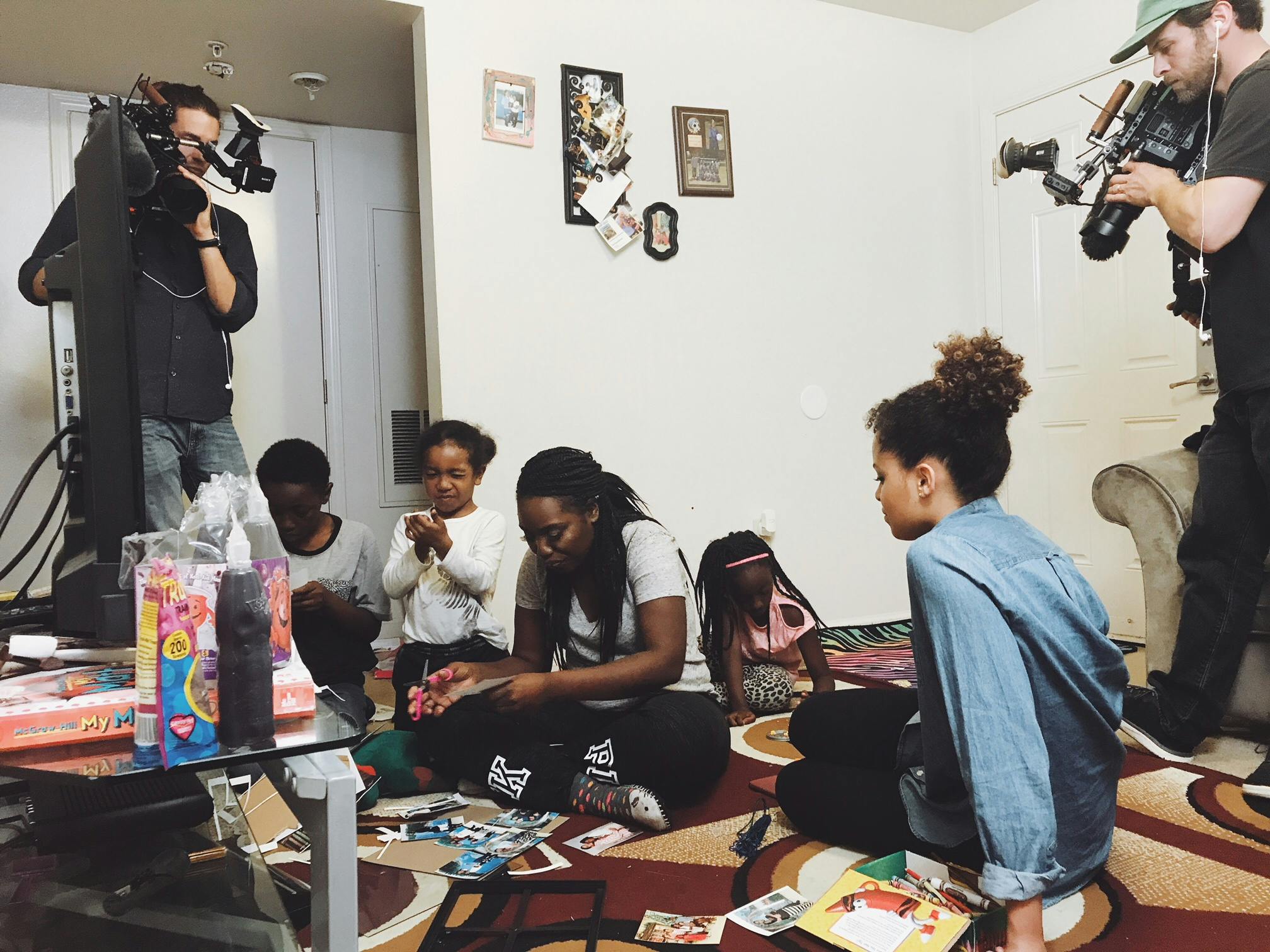
Not that long ago, I completed a 30-minute special on family separation. Our team was on the ground in Texas for two months. All of us have been reporting on immigration for a long time, but as we heard what was going on in federal courtrooms, as we heard what was happening to families, … we all agreed we were actually going to go basically live in Texas now, and we’re going to be on the border, and we’re going to talk to every stakeholder in this situation. And what came out of that were everything from simple stories and updates about what was going on—the number of kids, what the parents were saying and experiencing, what was happening on the international bridges between Mexico and the U.S.—we had all that.
But then we were able to really break through and follow from start to finish the experience of a family that actually got separated at the border. And you could watch that experience. The time we completed it just happened to be about the time of the court-ordered deadline for the Trump administration to resolve this whole problem. And of course they still haven’t. There are still hundreds of kids waiting to be reunited with their families … some of their parents deported before they could figure out where their children are. From a human and a reporting perspective, that was a really different experience, really challenging emotionally. And challenging from a reporting perspective because it is tough to get information from all these various agencies, all overlapping and involved in what’s going on in detention centers, and in foster-care situations in that part of the country.
What came out of that for me was a realization that, for the first time, a lot of people were waking up to certain ways in which elected officials had been behaving, or using federal offices in ways that they were maybe not comfortable with. Even some of the most conservative people I met along the journey were highly uncomfortable with what they understood was happening. People who had been not that long ago like, “Build that wall,” sure weren’t comfortable with what they saw there. The trauma that those children are going to be living with for the rest of their lives. Nobody, nobody in their right mind, is comfortable with that.
I think it brought this momentum into the moral referendum of what the midterms might mean. I think some people who were not reading the news every day weren’t feeling like they had a human perspective or idea of what these impacts actually look like, and what it means for the people in the families actually involved. I think a lot of them woke up to that. It will be interesting to see who then comes to the polls, and why they’re coming to the polls.
Do you think immigration is going to be a major driver around the U.S. midterm elections?
The people that I met, people that I interacted with in the course of telling all these stories—some of them didn’t vote in the last election. And now here they are, getting out every day with the T-shirt on, and they’re trying to register people to vote. They’re reaching out to Latinos who are new residents of Florida, trying to figure out how to get them to the polls. There’s a number of people who got their residency or their citizenship done in response to a lot of what we saw happening here with immigration. I think that there will be a real impact. How much? I think it’s tough to say, but certainly there are people who are coming out, because of what they felt morally, how they felt viscerally, what they saw, who weren’t coming out before.
For other issues, where there’s plenty of debate and hairsplitting or disagreement, we’re often seeing journalists and journalism in the crossfire.
Not even in the crossfire—they’re the target. This is a battle for like facts and truth. It is a really tough time to be a journalist, though that’s not unique to the Trump administration. There’s been a war on journalism for a while. I’ve completed a number of stories in the past year and received really scary messages online. My colleague Elle Reeve, who did our Charlottesville report. The amount of hatred and craziness she received, and still receives, since she still covers that beat. It’s enough to make some people afraid to keep doing this job. Which is of course the intent.
It’s terrifying and awful in the moment to be treated that way. I mean I work often with a black female producer named Tracy Jarrett. She has been called every name under the sun when she’s out doing political reporting with our D.C. office. There’s that experience of abuse, what it means for the future of this country if people don’t respect the Fourth Estate for information. They don’t want to hear a point of view that’s not their own. So what does that mean, and how might the election reflect how people are responding to that conversation?
I don’t know if I’d call it a silver lining, but there’s a different segment of the population that has newfound appreciation for that work. On any given week, I may have someone DM me saying that they hope that I die. But a couple days later, I might get a note from people who tell me, “Hey, I used to never read or follow the news, and now I watch Vice and I read the Washington Post every single day, and I love this category of stories that you do.” That means so much to me, and I sent it to these 10 people in my family who I think don’t completely understand what the impact of Trump’s zero-tolerance [immigration] policy was. So on some days, you’re hearing more from the people who hate you. And on other days, you’re realizing that you’ve actually opened up a world, opened up knowledge, and kind of shocked people into caring. That part of the job is what keeps me going despite the fact that things have become in some cases dangerous for journalists.
Do you see Vice creating a pathway or connection to the news with a younger audience, or an audience that has been somewhat disenfranchised or disconnected from the news?
For sure. Our work from Vice News Tonight on HBO has the youngest demographic in nightly news. Young people often don’t watch nightly news. Half my friends don’t even have cable anymore. Vice of course has a younger audience. They have that younger, spunkier DNA, and our reporters are younger. We dress the way I’m dressed right now.
I try to be really intentional in the stories I cover. I am the person who enters the room, I have a lot of knowledge, and I’ve researched this issue. But I’m also relatable—I’m here, and I’m going to sit on your stoop with you. I’m going to hang out with your kids for a bit while you get ready to do this interview. We approach journalism differently, and people feel that. They sense that in our stories. I think that’s why we get a different type of engagement. I think that’s why some of our crazier stories other people have been too afraid to cover, places people have been too afraid to go. … I did a story a year ago on Chicago gangs, and that story really broke through preconceived notions about gangs in Chicago. Some may be too afraid to send resources and people into those communities.
But Vice is going to go there, and I think we bring in a new audience. We attract people who don’t normally watch CNN every night. And I think that means that we have a different kind of impact on people. We have the goal of being inclusive to everyone who needs to know these stories. But young people definitely get brought into the fold more just because of that “we’re gonna go there” mentality.
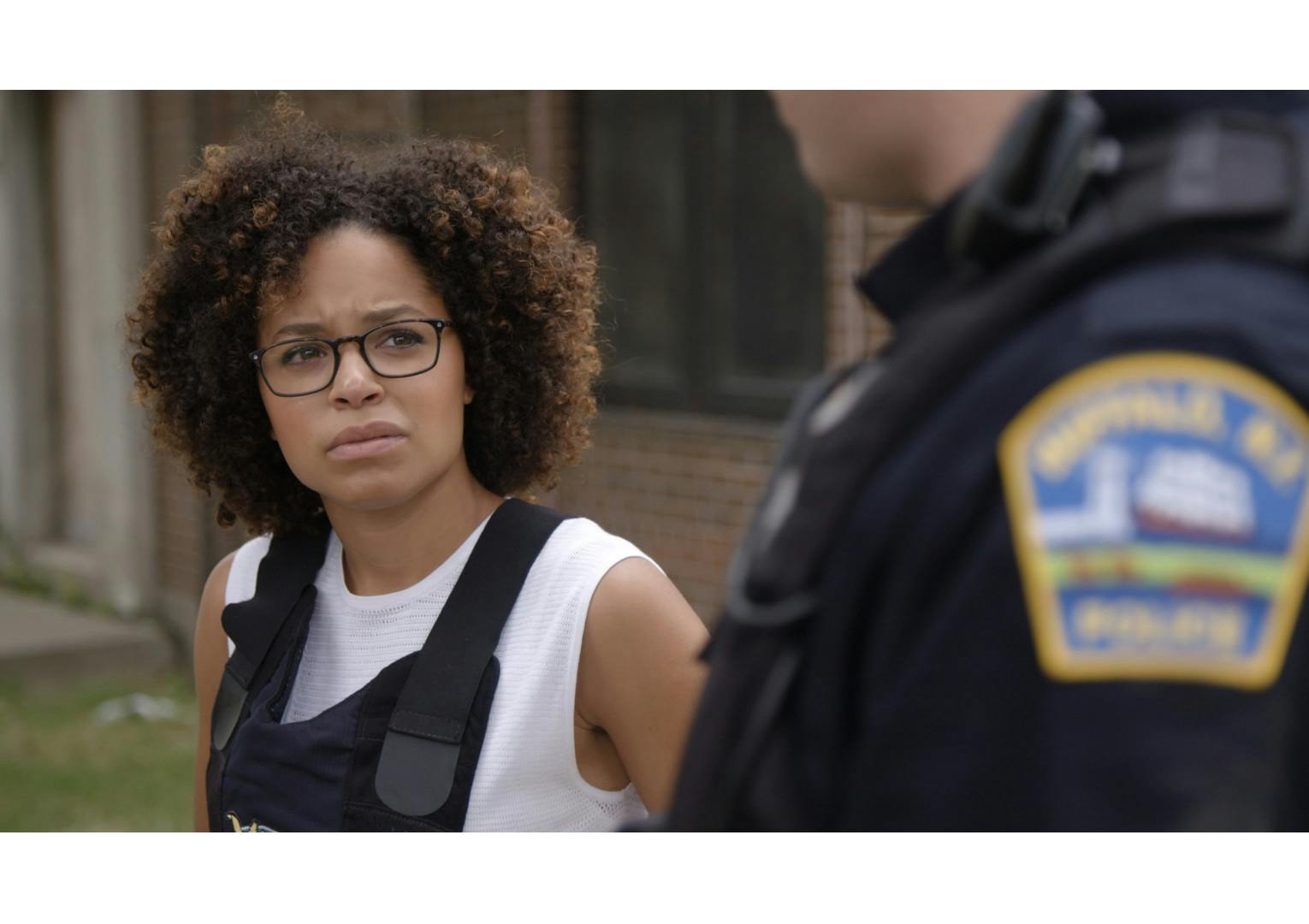
Do you think there will be a “Vice effect” in this election cycle, where more young people get involved?
I would love to be able to say that there’s a Vice effect. I’d love to say there was an Antonia effect! I don’t know that I’m going to be able to say that. But of course, young people are at the front of all this. Young people are running for office. Women and minorities are stepping up. I think they’re scaring people in the process, because they’re shaking things up and not following rules people would like them to follow. That’s happening you know in the political arena, and in the way that certain nonprofits and criminal justice and immigration organizations are run—they are giving their young people a lot of control. They’re the people now out there doing the interviews, running point. Those are the people who are knocking on doors and getting people to show up. I don’t know if we can call that the “Vice effect,” but Vice is definitely a part of that.
What’s it like covering the American prison system?
It’s hard to get access to those spaces because they don’t want you in there. It’s really hard to get permission to film anything, whether it’s your local county jail or a big prison in Louisiana. It’s a lot of work to do that kind of reporting. It’s interesting to look at the states like Louisiana, that’ve had these very recent conversations about “how should we treat incarcerated populations, here in Louisiana in particular?” The U.S. is the incarceration capital of the world, and Louisiana was until recently the incarceration capital of the U.S. And now their conversation has turned to how they should treat formerly incarcerated people as well, like with their voting rights. That’s another piece of this midterm story—another moral referendum on the way we do things in our country.
Incarceration is a big part of that. We just saw it with the prison strikes across the country. I covered them in 2016. Here we are again having a lot of the same conversation, but now an evolved conversation. It’s not just about better conditions, corruption of staff in prisons, better healthcare for prisoners. Those things are all crucial and critical. Now the prisoners are activating people on the outside to work on getting them better voting rights. They’re trying to have conversations with the legislators in their state. They see themselves as being part of a larger national conversation, and they’re literally using networks and different tools of communication that they have to be in touch with multiple jails and prisons at any time to coordinate on how they’re going to have those conversations. And I think that that’s really interesting.
I think this round of strikes isn’t going to be the last round that we see in the coming years. And certainly there’s a segment of the population that would have a big impact on when they leave prison, or whether they can vote while incarcerated. I think those things would have a huge impact on what the electorate looks like in the future. It’s an interesting field to do reporting in because there’s a movement to get the incarcerated to the forefront of the conversation. People should keep their eye on that.
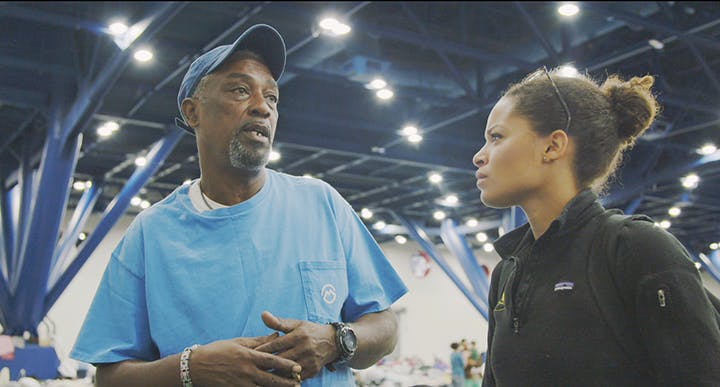
Given where we are in the state of media and social media, how do you encourage young people to find the truth, and to find their truth?
Read reputable news sources, such as Vice News, or Vice News Tonight on HBO, or Friday night on HBO! Of course, also sources like The New York Times, Washington Post. Vox is doing really wonderful work, they do a great job of breaking down information for people who are looking for a quick understanding of what’s going on if they’re new to the conversation. There are so many people doing great work at these different outlets and organizations. Make sure you’re reading places that have reporters doing the backbreaking work of fact-finding and fact-checking. You should not be getting your news from Infowars.
“No matter who you are, you can’t entirely tune out.”
But going to sources of real news is really just step one. The other thing that I tell young people who I meet during my travels for work, or even my friends, is to keep having conversations. I think a lot of people are exhausted by headlines, exhausted by scandal after scandal, sad about whatever thing has happened, that they feel is an attack on their identity, or the person that they see themselves as. Start having conversations, go sit down with that relative who disagrees with you on this or that issue, and debate them on it.
Go to your friend and tell them about the thing that you read because maybe they haven’t yet had that awakening that you had, or they’re not ready to talk about that issue. So go to them and over dinner or drinks or whatever. Talk about what you heard is happening at the state level. Talk about Rikers Island here in New York. Talk about it, take it to the next step. There’s that grassroots work getting people to tune in, getting people to care about elections. But there’s also just the day-to-day osmosis of you caring, [which] means other people will care.
I get really inspired on my stories when I meet people who are really inspired about the things they’re working on. I just did a story in South Fulton, Georgia, which just broke off of Fulton County. It’s a 90 percent black city. It’s the self-determination of black people’s dreams.
They’ve put eight black woman in charge of the most crucial criminal justice departments for the entire city. They have thought so carefully about how to treat incarcerated people, how to talk to defendants when they’re in the courtroom, how the police are going to behave out in the community. They have those conversations really proactively, and it’s creating this really interesting experiment in this city.
Being there and meeting all these people, who are so excited to be on the front lines of creating a city for black people, one they hope will be nothing like how so many black people experience systems of government and policing in all these other cities. … The way they talk about it, it’s like, “Come to Wakanda.”
These women are so excited not just to see themselves represented in positions of power—they get to decide to use power differently, and that’s a really radical and interesting thing. What does it mean if a black city gets to have self-determination? Can and should something like this be replicated across the country? What can other cities with a large black population, like Baltimore—what can they learn from the way you run your city? What made that shoot so inspiring was being around all those people who were very young to be in the positions of power that they were in, and really excited to be there. You can feel when you’re in South Fulton how politically engaged so many people there are, because politics and policy are in the identity of building that place. What would it mean if every place thought of itself like that—an organism where everyone’s involved and thinking actively about it? There were a lot of questions like that. It was fascinating.
Given that some of these important stories are sad stories, where do you see the bright spots?
No matter what side of the aisle you’re on, there are all these critical questions, and people are going to come forward with a vote, with a thought, with a fight about it.
And there have never been more organizations, teams, and tools at your disposal to try to do something about it. No matter what team you plan to play for. No matter who you are, you can’t entirely tune out. You’ve woken up in some respect, you’ve thought about something, some part of this has motivated you, and it’ll be really interesting to see in the next couple months, what does that mean, where does our country want to go?
I think the bright spot is engagement. It’s how excited and energized people will be. And hopefully some of that energy, after it translates into real voting and legislative actions and impacts, maybe it will lead to more conversation, too.
It’s hard to have dialogue right now because things are so contentious, and I think people are struggling so much to talk to people whom they may have deep moral disagreements with.
As people take action and start to think more critically on those questions, they’ll just necessarily actually have to open up more to conversation, to people within their own parties and groups that they disagree with. Once you’ve got a seat in Congress, now you need to start working with people across the aisle.
People are motivated to take part in the civic process of being in this country. That is good.
There are so many things to to be concerned about, to care about, to need to read up on, and it can be overwhelming, but I think people are trying to do it.
And I didn’t didn’t feel that all the time when I was doing my campaign reporting in 2016. I would meet people who were like, “I don’t care. They both stink. I’m not going to the polls.” I don’t really hear that that much anymore.




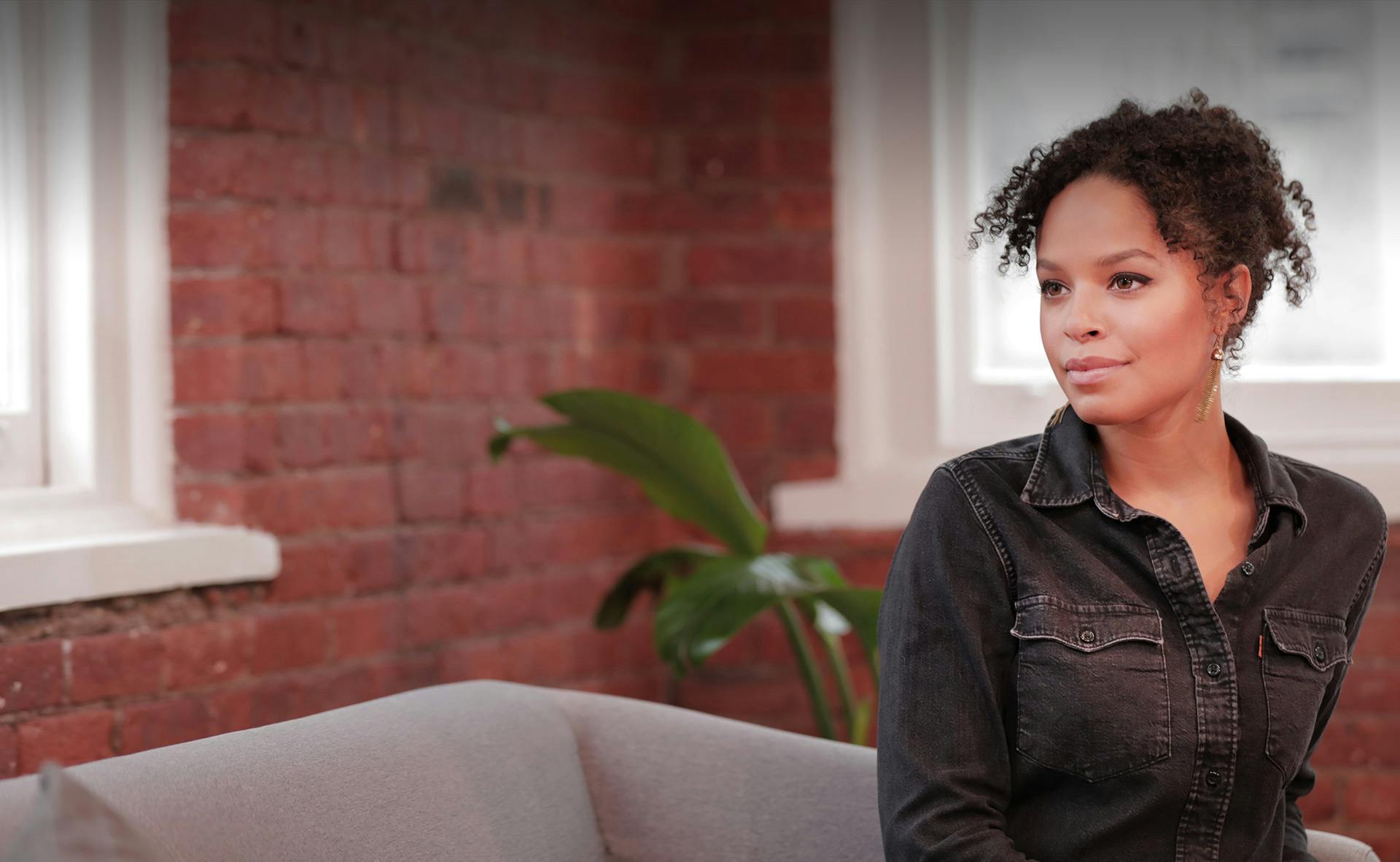
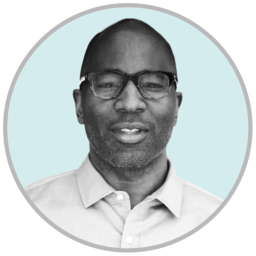
![true [X]](https://images.prismic.io/overtureglobalio/d20d19f0ac141059ec92c667f6cddf6ca09e2c1a_truex-logo2x.png?auto=compress,format)





